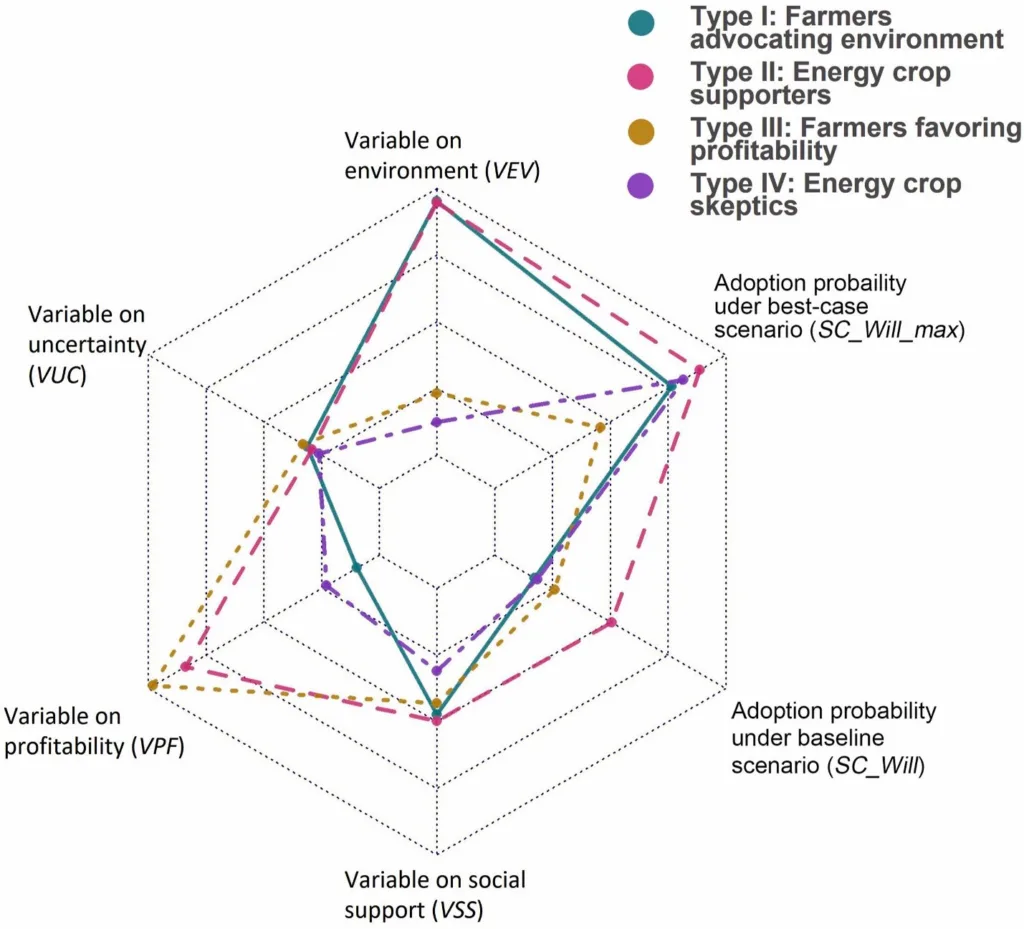Adoption of Perennial Energy Crops in the U.S. Midwest: Causal and Heterogeneous Determinants
Themes: Sustainability
Keywords: Modeling
Citation
Yang, P., Cai, X., Leibensperger, C., Khanna, M. Oct. 30, 2021. “Adoption of Perennial Energy Crops in the U.S. Midwest: Causal and Heterogeneous Determinants.” University of Illinois Urbana-Champaign. DOI: 10.13012/B2IDB-4131696_V1.
Overview

The success of a bioenergy policy relies largely on the wide adoption of perennial energy crops at the farm scale. This study uses survey data to examine potential adoption decisions by farmers in the U.S. Midwest and the causal effects of various direct and indirect influencing factors, especially heterogeneous preferences of farmers. A Bayesian network (BN) model is developed to delineate the causal relationship between farmers adoption decisions and the influencing factors. We find a dominating role of economic factors and a non-negligible impact of non-economic factors, such as the perceived environmental benefits and the extent of familiarity with perennial energy crops. To examine the effect of heterogeneity in farmer preferences, we classify the surveyed farmers into four categories based on their attitudes toward the economic, social, and environmental dimensions of perennial energy crops. We identified statistically significant between-group differences in the responses of the four types of farmers to the various influencing factors. Our findings contribute to disentangling the complicated motivations that will influence perennial energy crop adoption decisions and provide implications for more targeted policy development that need to consider the heterogeneous drivers of farmer decisions about land use.
Data
- Farmer Survey Analysis